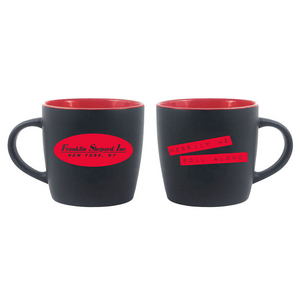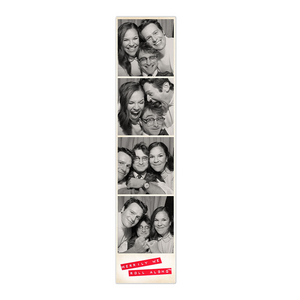How Often Do Broadway Flops Return as a Hit?
Jennifer Ashley Tepper Is answering your questions with Broadway Deep Dive!

Do you have a burning Broadway question? Dying to know more about an obscure Broadway fact? Broadway historian and self-proclaimed theatre nerd Jennifer Ashley Tepper is here to help with her new series, Broadway Deep Dive. Every month, BroadwayWorld will be accepting questions from theatre fans like you. If you're lucky, your question might be selected as the topic of her next column!
Submit your Broadway question in the comments here!
This time, the reader question was: With Merrily We Roll Along back on Broadway as a hit, how many musicals are flops in their original Broadway production and then return as smashes?
The current revival of Merrily We Roll Along at Broadway’s Hudson Theatre has definitely made theatre history. While there have been instances of shows originally flopping on Broadway and then returning for a more successful run later on, rarely if ever are the numbers associated with that return so stark in comparison with those of the original production.
In 1981, Hal Prince and Stephen Sondheim teamed up for another Broadway musical, after a string of thrilling shows throughout the 1970s that were produced and directed by Prince, with music and lyrics by Sondheim. These were Company (1970), Follies (1971), A Little Night Music (1973), Pacific Overtures (1976), and Sweeney Todd (1979). The sixth show in this line of indelible, groundbreaking musicals was Merrily We Roll Along. Based on an underappreciated Moss Hart and George S. Kaufman play, Merrily would chronicle the story of a trio of friends working in show business from their idealistic early days to their current estrangement. The trick was that Merrily would tell the entire tale backward, making for a meaningful exploration of how the three friends and those around them got here from there.
Part of the concept of the original production of Merrily was that, while the characters might be in their 40s at the show’s beginning/ story’s end, the actors playing them would be young people in their late teens and early 20s. The intention was for this to inspire the feeling in audience members at the end of the show, watching young people singing “Our Time”, that it wasn’t too late and their story could turn out differently.
The original production was a massive heartbreaker for all involved. It closed after only 16 performances. The documentary Best Worst Thing That Ever Could Have Happened, directed by original Merrily cast member Lonny Price, is a highly recommended look into the historic original production. I’m also proud to have interviewed many of the cast and creative team members of the original production for my book series, The Untold Stories of Broadway, which contains a large section on Merrily We Roll Along’s 1981 run at the Alvin (now Neil Simon) Theatre.
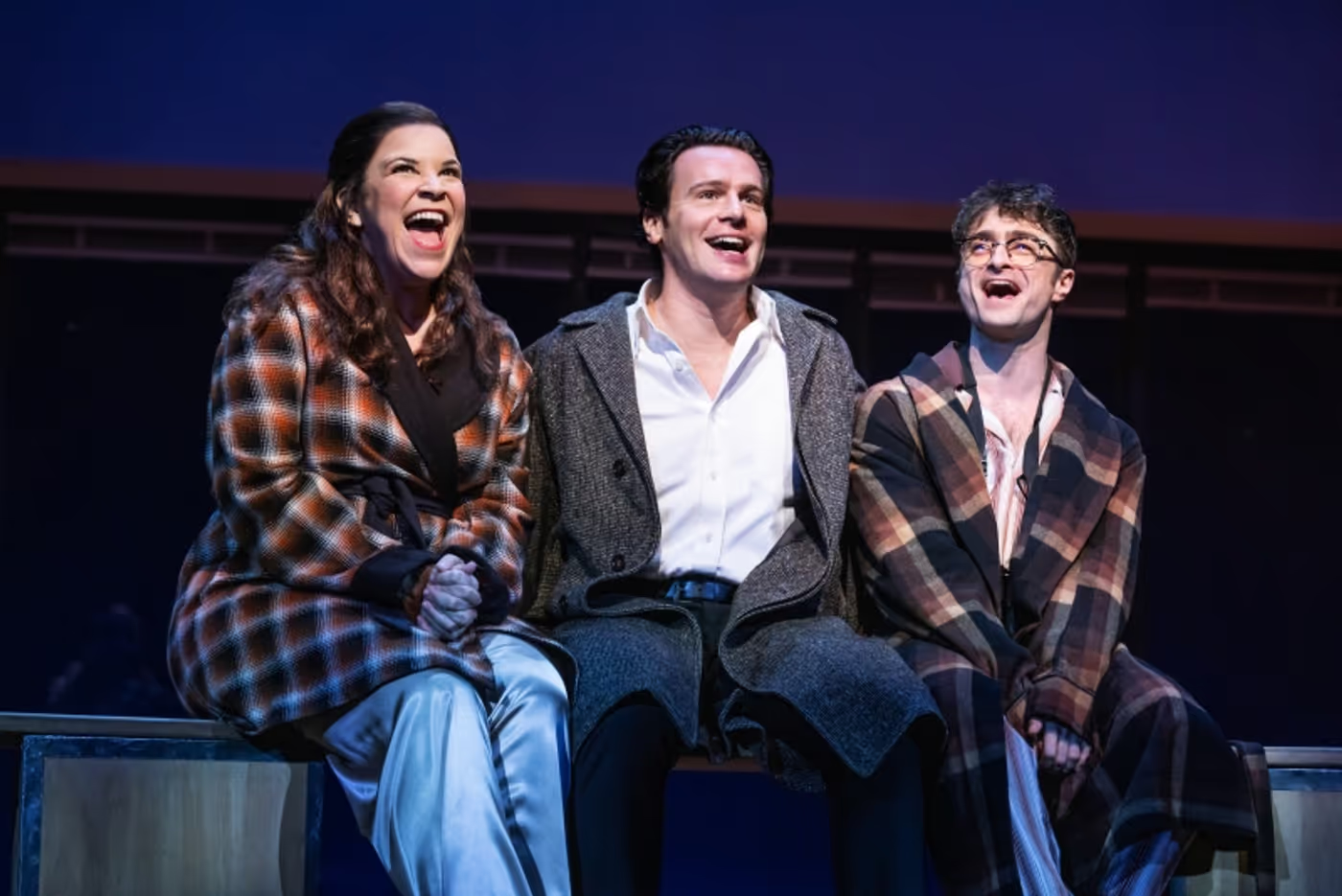
The expectations for the latest Sondheim-Prince musical were astronomical, and separate from production issues, those high expectations have also been cited as one element that contributed to the original production’s early demise. While the show struggled creatively and financially throughout its time at the Alvin in 1981, there were also many theatergoers, from young theatre fans to high level professionals, who were extremely moved and influenced by the musical. (“Flop” is a technical term for a show with a relatively short run that doesn’t make its investment back—and not necessarily meant as a reflection of the artistry of a given work.)
The legacy of Merrily continued as the cast album, recorded the day after the show’s closing, reached new ears and hearts over the years. New productions revised the script and re-shaped the show. While aficionados might spiritedly debate which version of Merrily is “best”, it’s undeniable that the many different revisions and revivals helped the show reach new audiences and develop further during the 42 years between Merrily’s original Broadway production and first Broadway revival.
While Broadway economics were very different in 1981 than they are today, it’s worth noting that the original production of Merrily We Roll Along grossed about $137,000 during its final week on Broadway and played to about half capacity. (Original cast members once told me that they thought, from the stage, that their theater’s Exit signs were blinking… before they realized that what they were seeing was audience members leaving mid-performance.) The original production was a significant financial failure, much to the disappointment of all involved.
42 years later, Merrily We Roll Along finally returned to Broadway. In the interim, there were hundreds of regional, international, school, and even off-Broadway productions. Countless new fans were gathered along the way. The world lost both Hal Prince and Stephen Sondheim, legends of the musical theatre. When Merrily We Roll Along was presented off-Broadway at New York Theatre Workshop in 2022, helmed by Maria Friedman, it was a sell-out hit. Tickets were expensive for this high profile revival of the underappreciated show starring Jonathan Groff, Daniel Radcliffe, and Lindsay Mendez. A transfer to Broadway was announced and advance sales were immediately through the roof. For the past month, Merrily has played to 100% capacity with a $1.8 million gross each week.
Merrily’s unique place in theatre history, as an extremely beloved cult flop from some of the greatest creators ever on Broadway, which took over four decades to finally return to Broadway, undoubtedly contributed to this discrepancy in technical levels of success between the 1981 and 2023 productions.
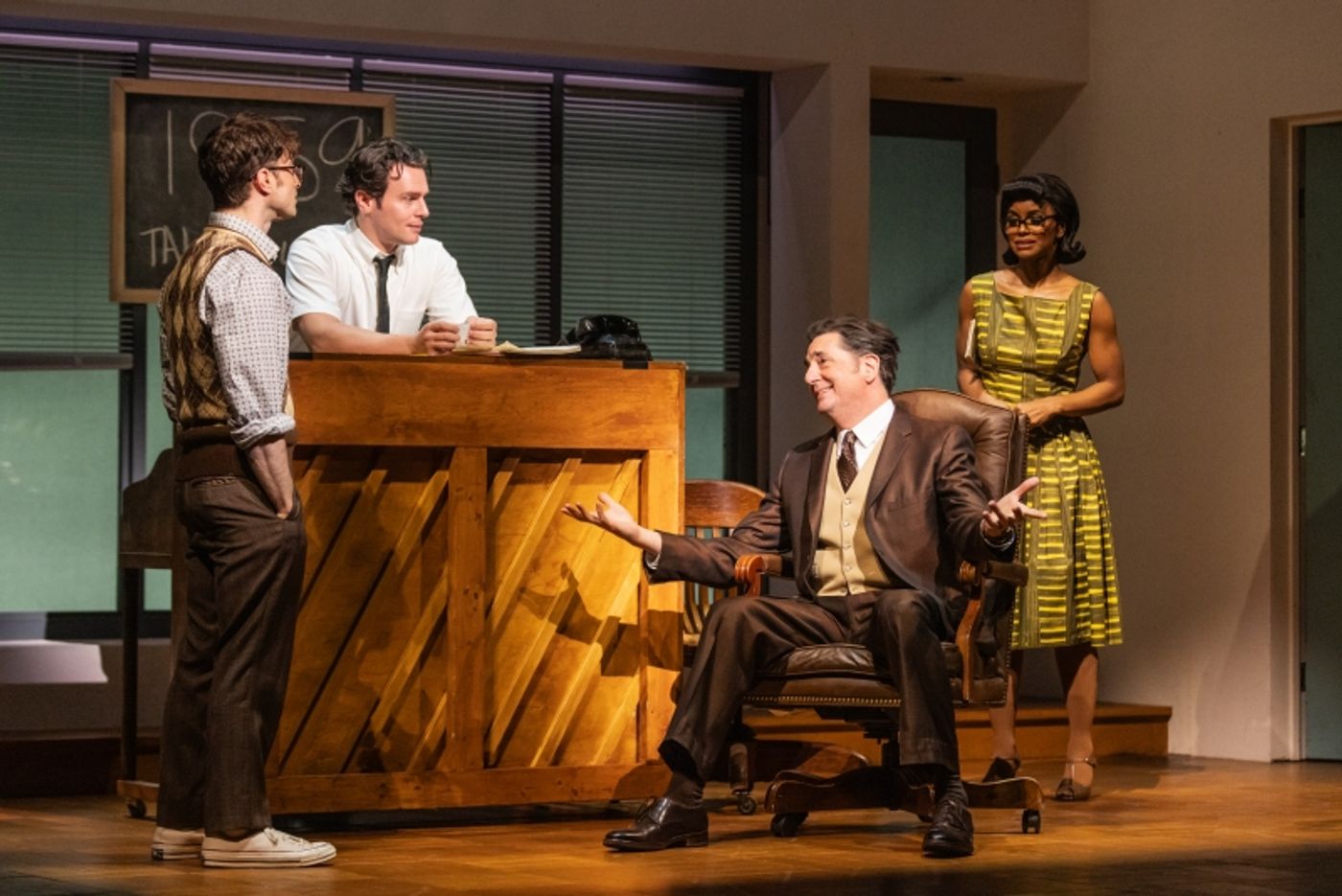
In his long and influential career, Hal Prince experienced hits and flops. As a prolific director and producer, Prince took big risks and made significant innovations to the art form of musical theatre. This made for musicals that were smash hits in their own time, from Fiddler on the Roof to The Phantom of the Opera. To Prince’s credit, it also made for a number of musicals that were somewhat ahead of their time in their vision, and have become increasingly appreciated as time has gone on. Prince was at the helm of several shows that earned a place in the canon due to his original productions, and which have flourished further in revivals as they have reached new audiences.
One of these shows was Parade. In its original 1998 production, Parade won Tony Awards for its Book (by Alfred Uhry) and Score (by its then-only-28-year-old composer-lyricist Jason Robert Brown). It was a serious and complex work about anti-Semitism, racism, and the roots of discrimination. The original production of Parade at the Vivian Beaumont Theatre had a short run of less than three months, and was not as critically acclaimed as the show’s Broadway comeback. In 2023, Parade was revived on Broadway after a much buzzed-about City Center Encores! run, receiving accolades including the Best Revival of a Musical Tony, and selling at about capacity for nearly its entire limited run, starring Ben Platt and Micaela Diamond.
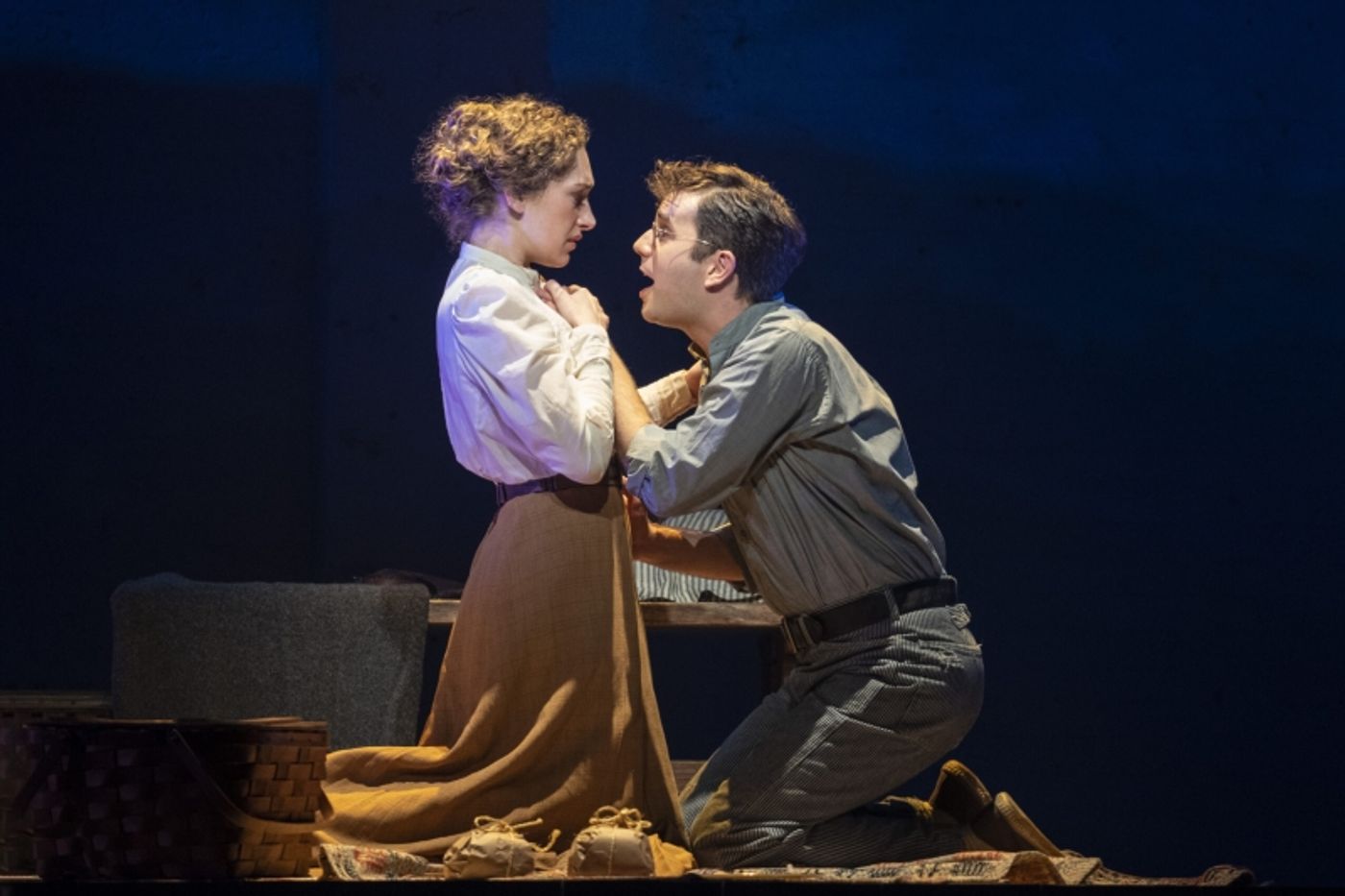
It’s worth mentioning that stars and theatre names who sell tickets are more likely historically to sign on for revivals of musicals, rather than original projects. This is for a variety of reasons, including that revivals more often have limited runs, which are appealing to in-demand actors, and that the material in a revival is already tested-out— often stars are already fans of the existing work. In cases like Merrily and Parade, actors lending their star power to a revival can help an underappreciated show to attain a successful run and be seen by audience members more widely, who wouldn’t have purchased tickets otherwise.
Another of these shows in Prince’s career was She Loves Me. An intimate, charming 1963 succès d’estime, somewhat overshadowed by the larger musicals of its era, the beloved Bock and Harnick musical experienced increasing success in its 1993 and 2016 Broadway revivals. The latter starred Zachary Levi, Laura Benanti, Jane Krakowski, and Gavin Creel.
On the flip side of Prince’s career, he also directed the 1974 revival of Candide, a musical which was a flop in its original 1956 run, and which Prince re-envisioned for an environmental immersive staging with a revised script. In this case, Prince was not part of the original production but rather expanded Candide’s reach and legacy with his revival, also directing it in several other stagings, including on Broadway in 1997.
While Prince’s Cabaret was a hit in its original 1966 run, spending almost three years on Broadway, the show experienced an even longer run with its 1998 revival, which stuck around for almost six years. (Of course, as the average Broadway run of a hit show becomes longer in general due to economics and sales patterns, that must be taken into account in all of these cases as well. Sometimes, a successful initial run based on the standards of one era, and then a longer run in a subsequent decade is as much a reflection of evolving Broadway economics as it is a reflection on a given show.) All of that said, it’s another Kander and Ebb show, Chicago (which Prince was not involved with) which might be more aptly compared to Merrily’s journey in terms of contrast between the original production and revival’s levels of success.
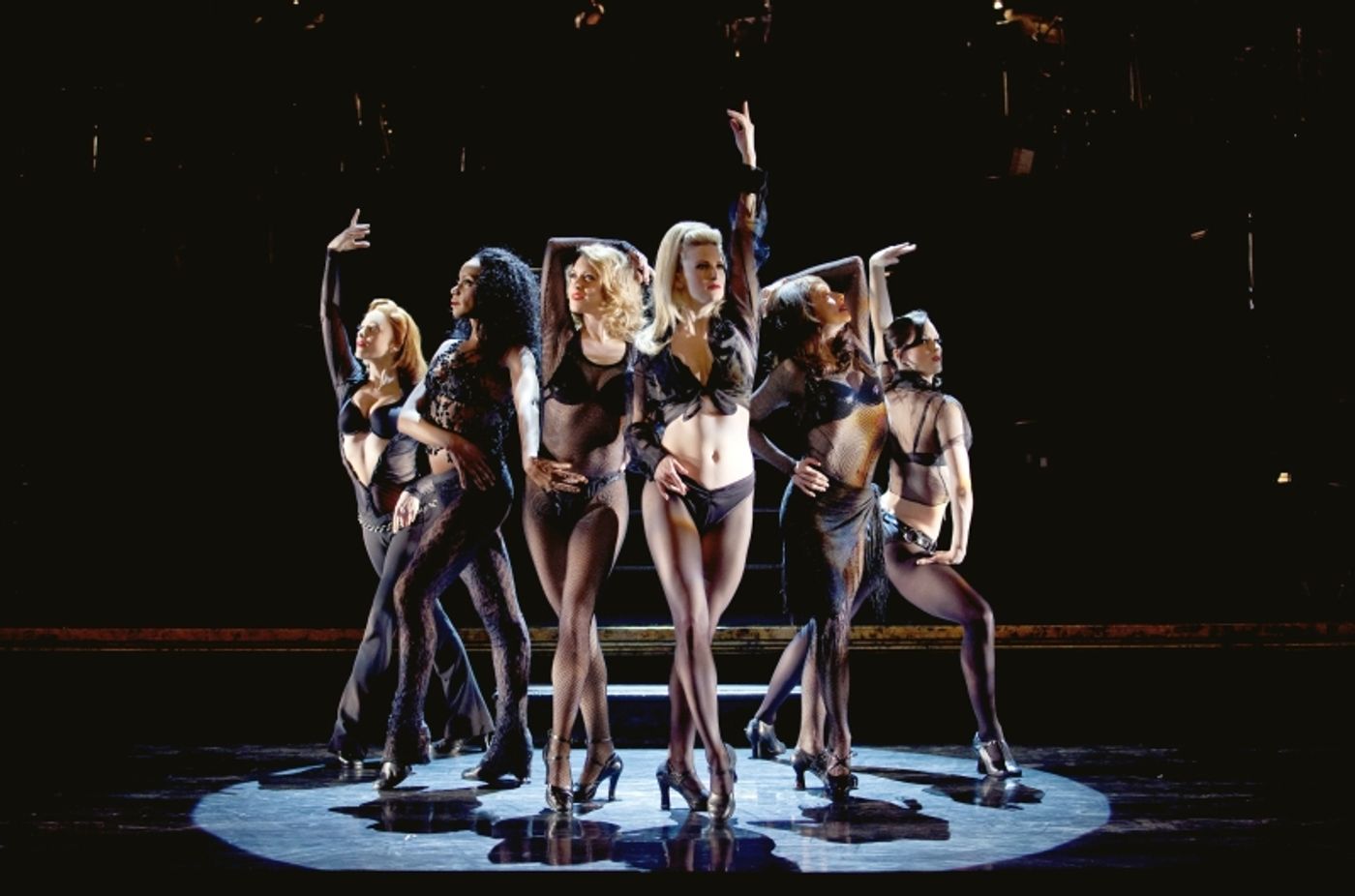
In its original production, Chicago ran just over two years. It was significantly overshadowed by A Chorus Line, which swept the Tony Awards and stole the spotlight from every other musical that opened during the 1975-1976 season. The 1996 Broadway revival of Chicago is still running to this day, the longest running Broadway revival in history, and the longest running American musical in Broadway history. (In fact, it is the second longest running production in Broadway history, period, behind only Phantom of the Opera.) The Chicago revival has played over 10,000 performances to date, in contrast with the original production’s 936 performances.
While neither Broadway production of The Rocky Horror Show was a financial smash, the 2000 Circle in the Square revival ran for far longer than the original 1975 production, which closed in less than a month. The Belasco Theatre interior was extensively ravaged, including the removal of the theater’s original boxes, for the New York premiere of the subversive show that had taken London and Los Angeles by storm. But the original Broadway production of Rocky Horror Show did not impress New York audiences in 1975. The film’s smash success contributed to the visibility and fan base that led the revival to its 437 performances, 25 years later.
On the other hand, Oh! Calcutta! was a hit in its original production, running for 1,314 performances. However, the nudie musical is worth mentioning in this context because while it ran for 3 years in 1969, the 1976 revival of the show exceeded that and ran for 13 years and 5,959 performances! The revival of the show played more than the standard 8-performance Broadway week, which helped contribute to its record-breaking number of performances.
On the play front, the Hamilton Deane-John L. Balderston adaptation of the Bram Stoker classic book Dracula attained a 261 performance run in 1927, respectable for its time. The show was revived briefly in 1931, and then in 1977, an underdog revival became a notable hit, racking up 925 performances. A then-39-year-old Frank Langella played the title role, with replacement Draculas including Raul Julia, in this production which helped producers Elizabeth I. McCann and Nelle Nugent launch their outstanding producing careers.
The Broadway shows discussed here are not the only ones that achieved significantly longer runs and/or were notably more financially successful in revivals than during original runs. And they won’t be the last! What show do you think could return to Broadway for a more lucrative engagement the next time around?
Comments

Powered by
|
Videos


